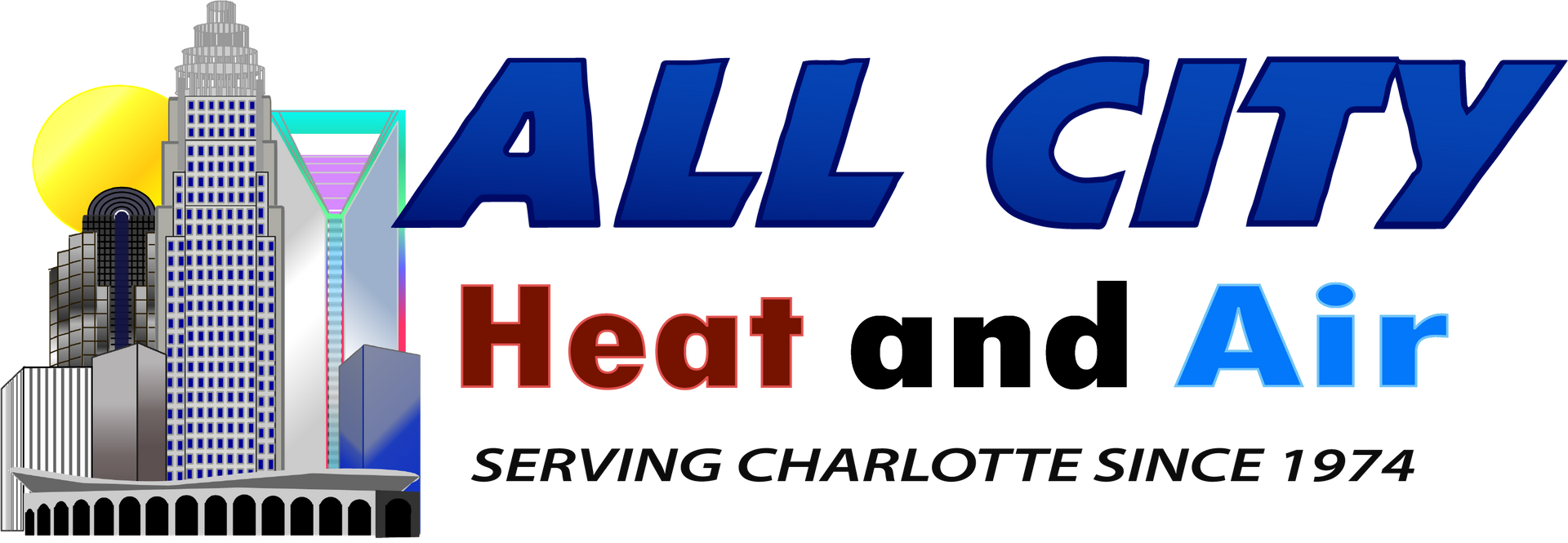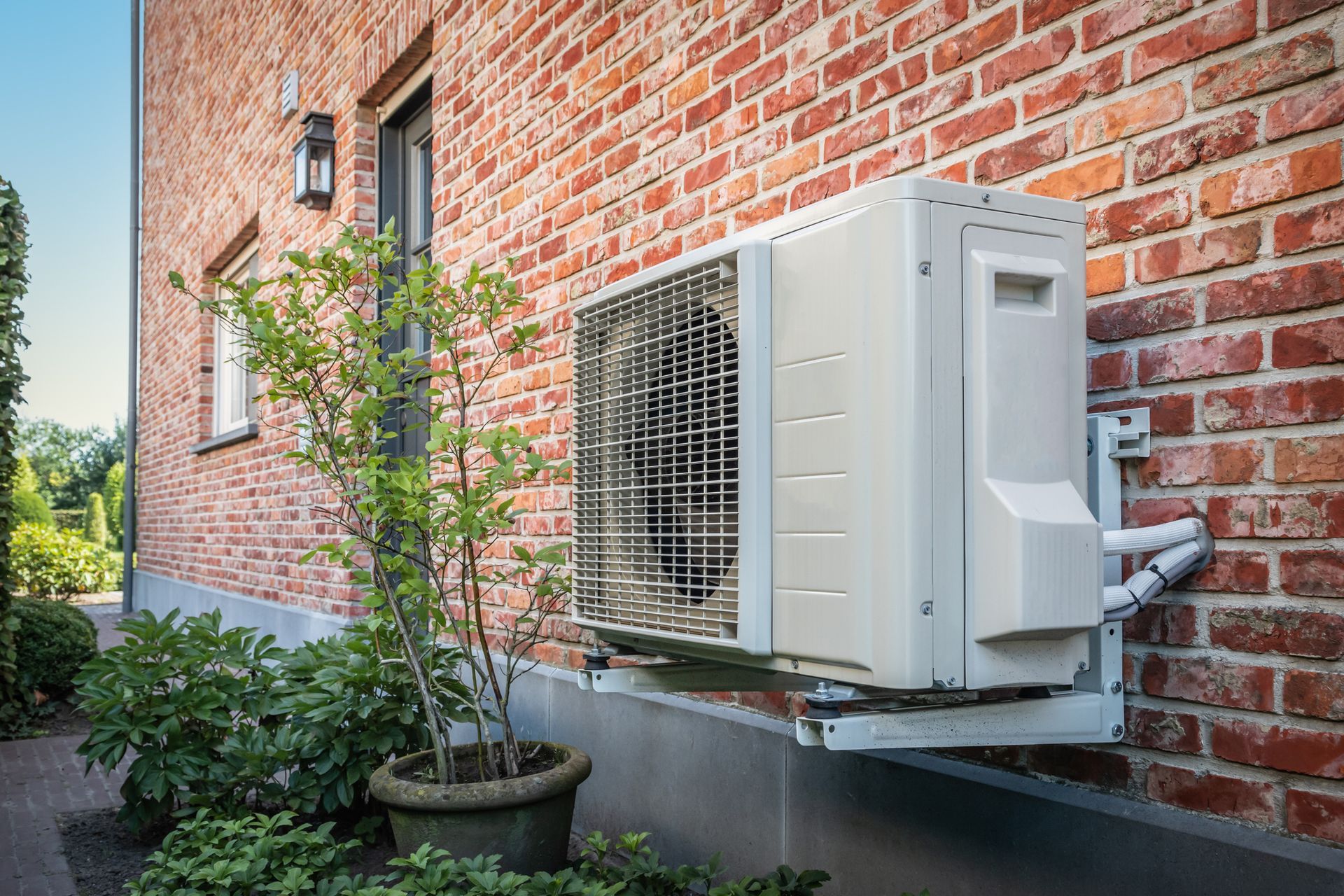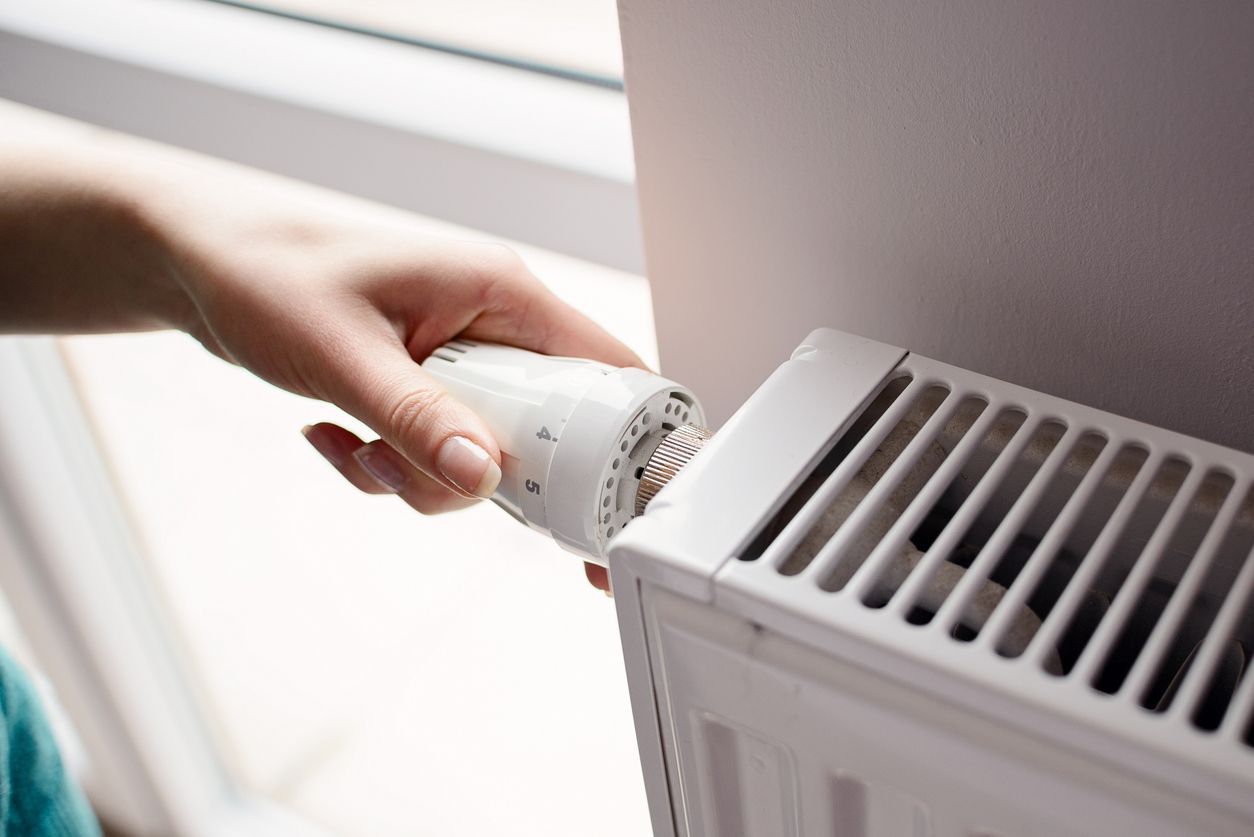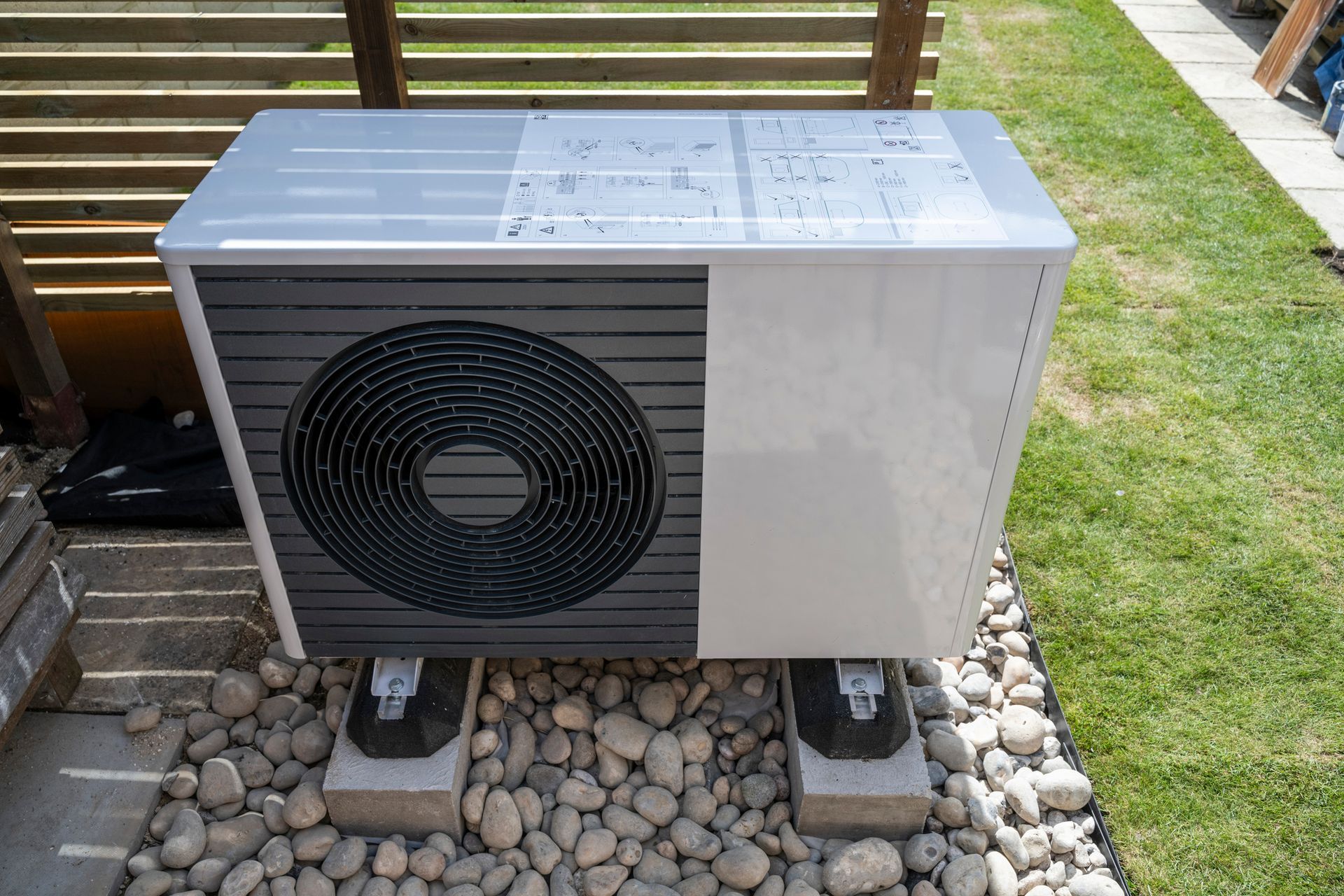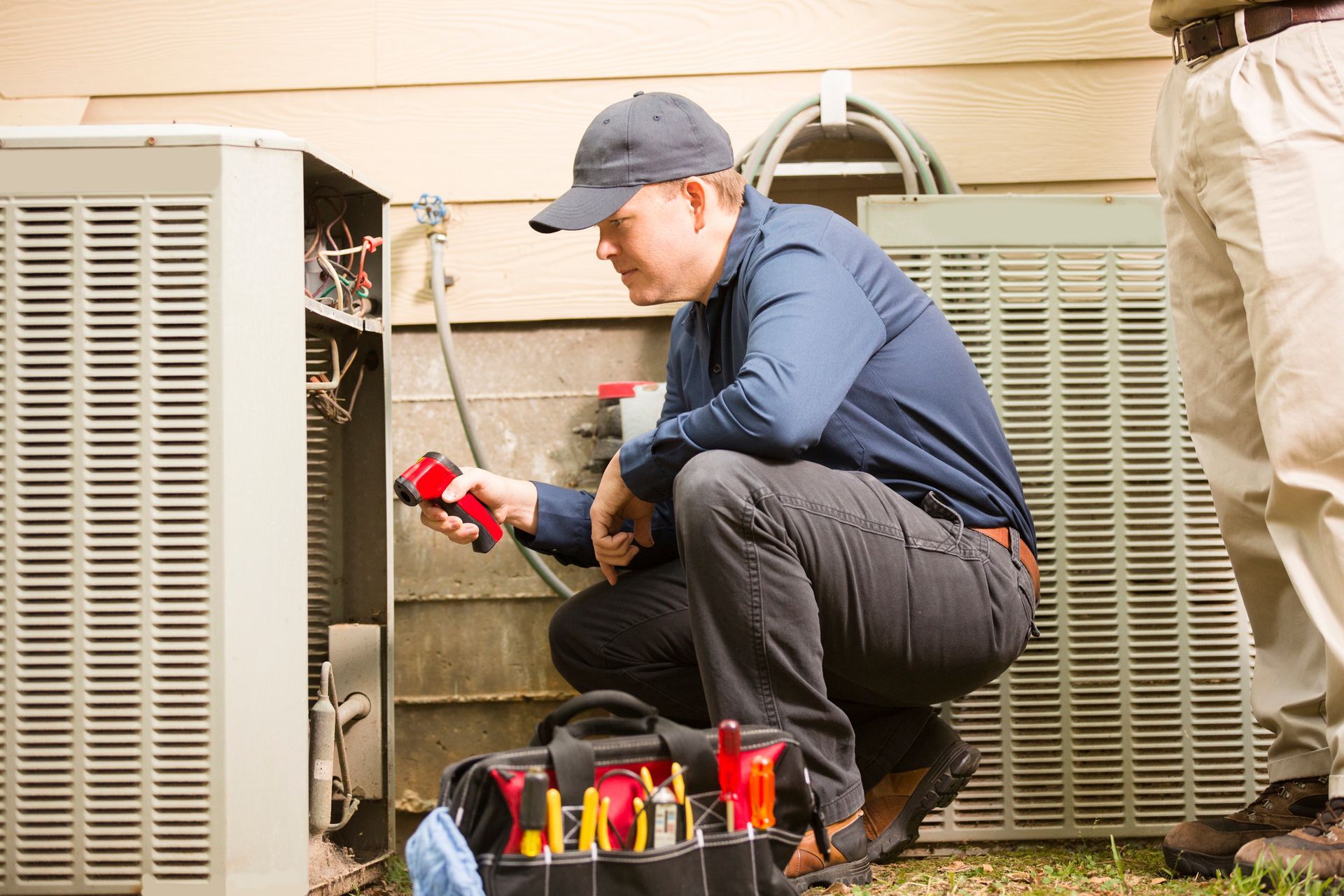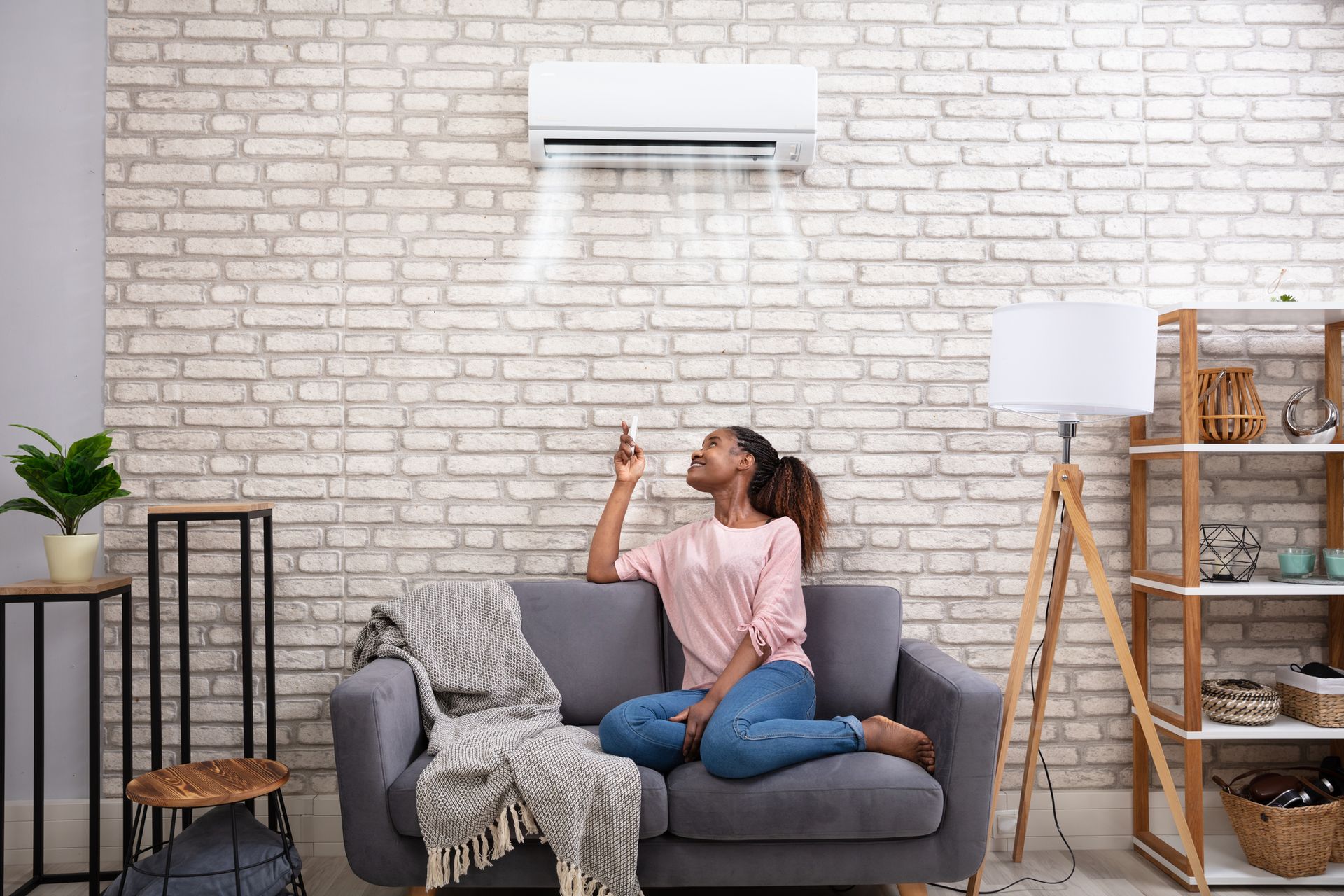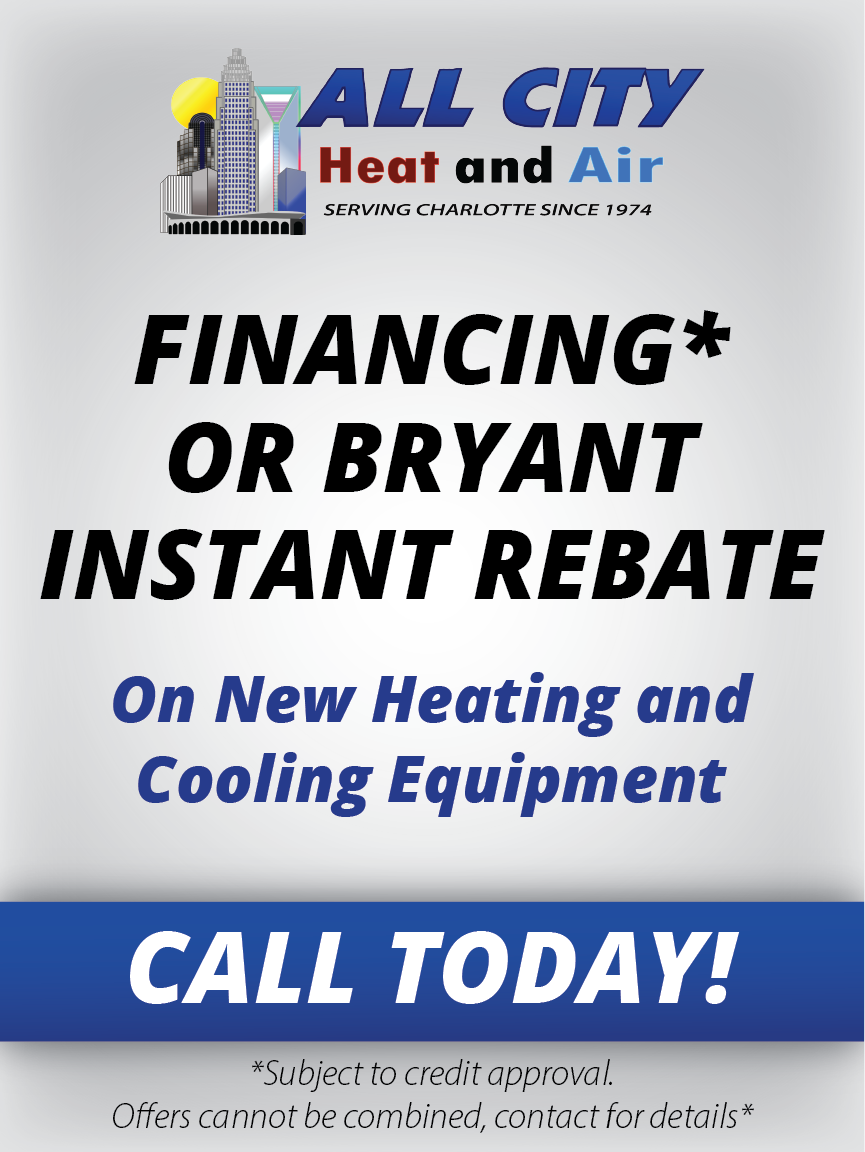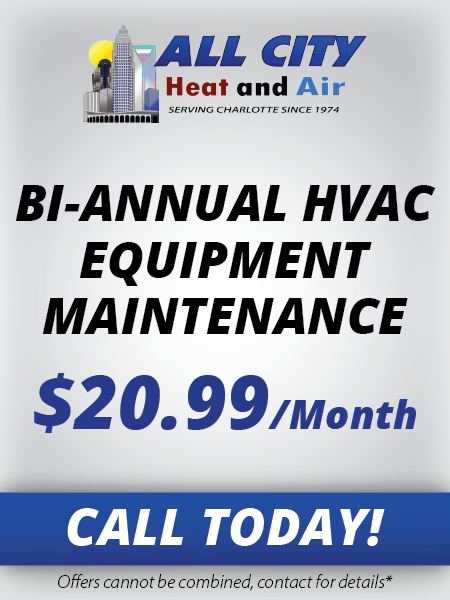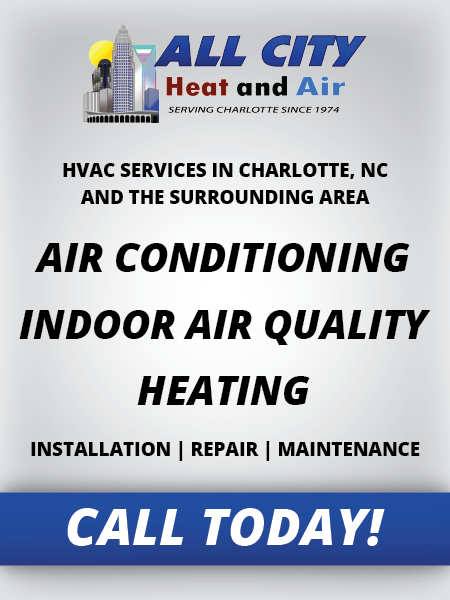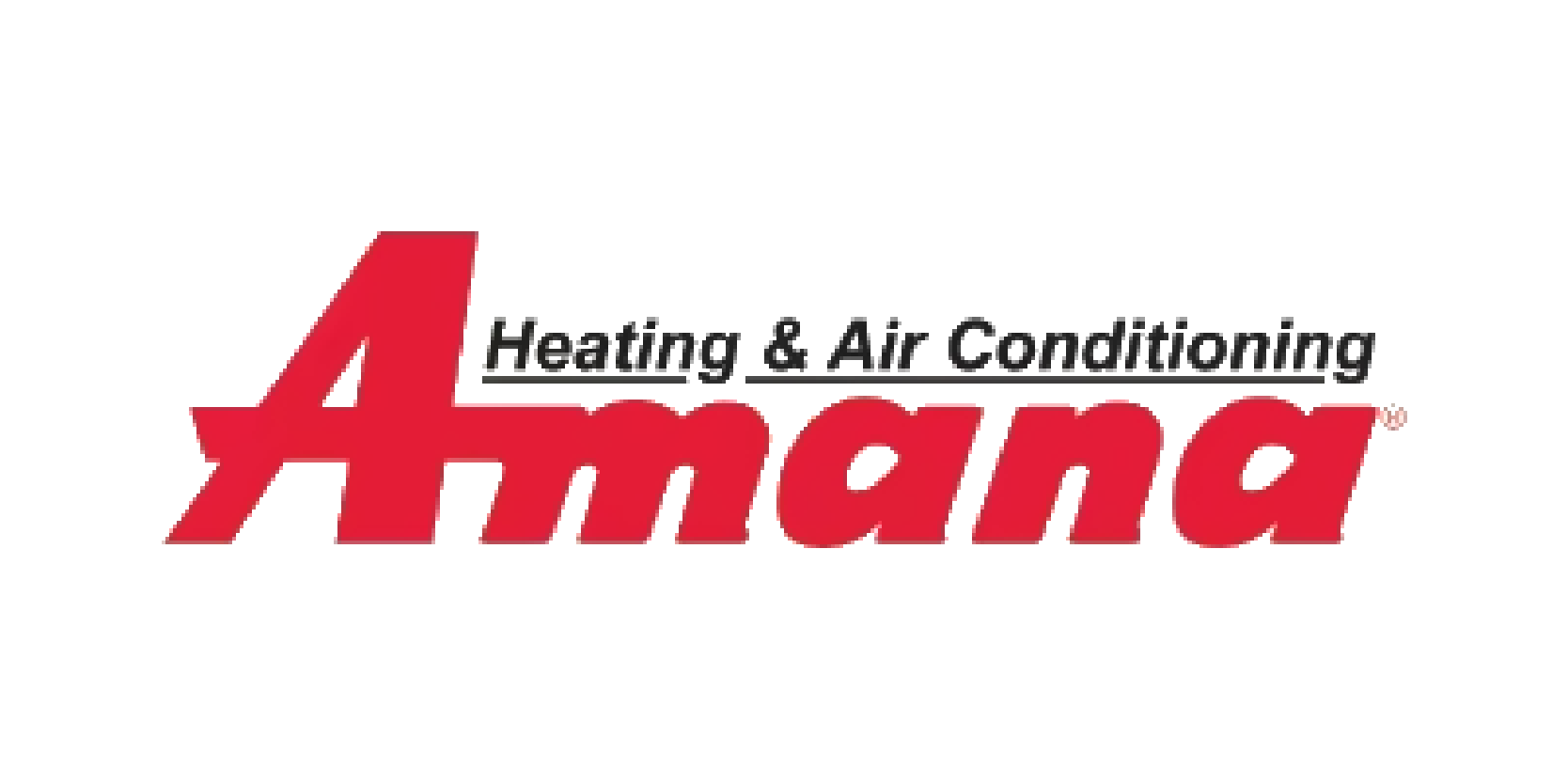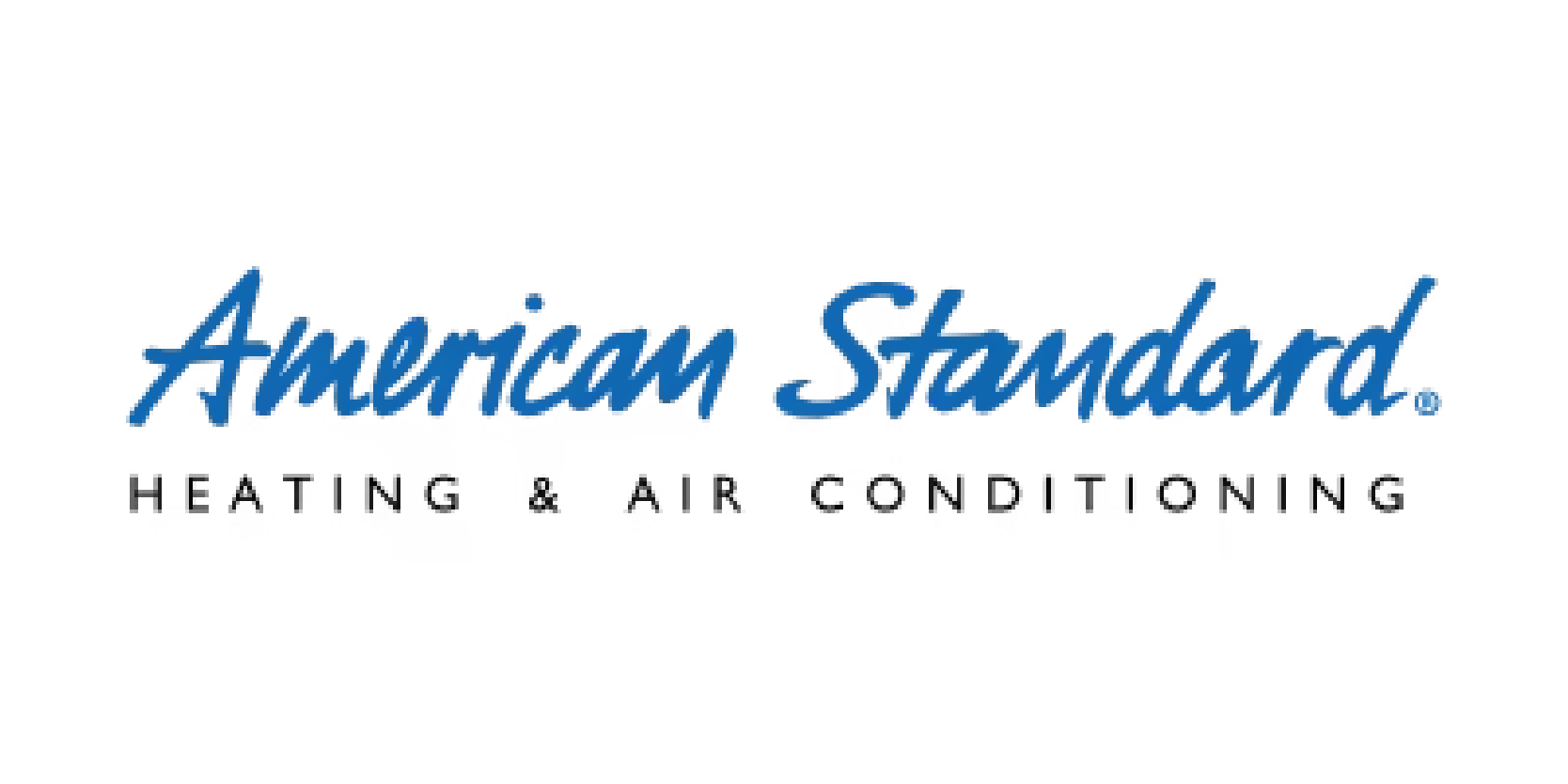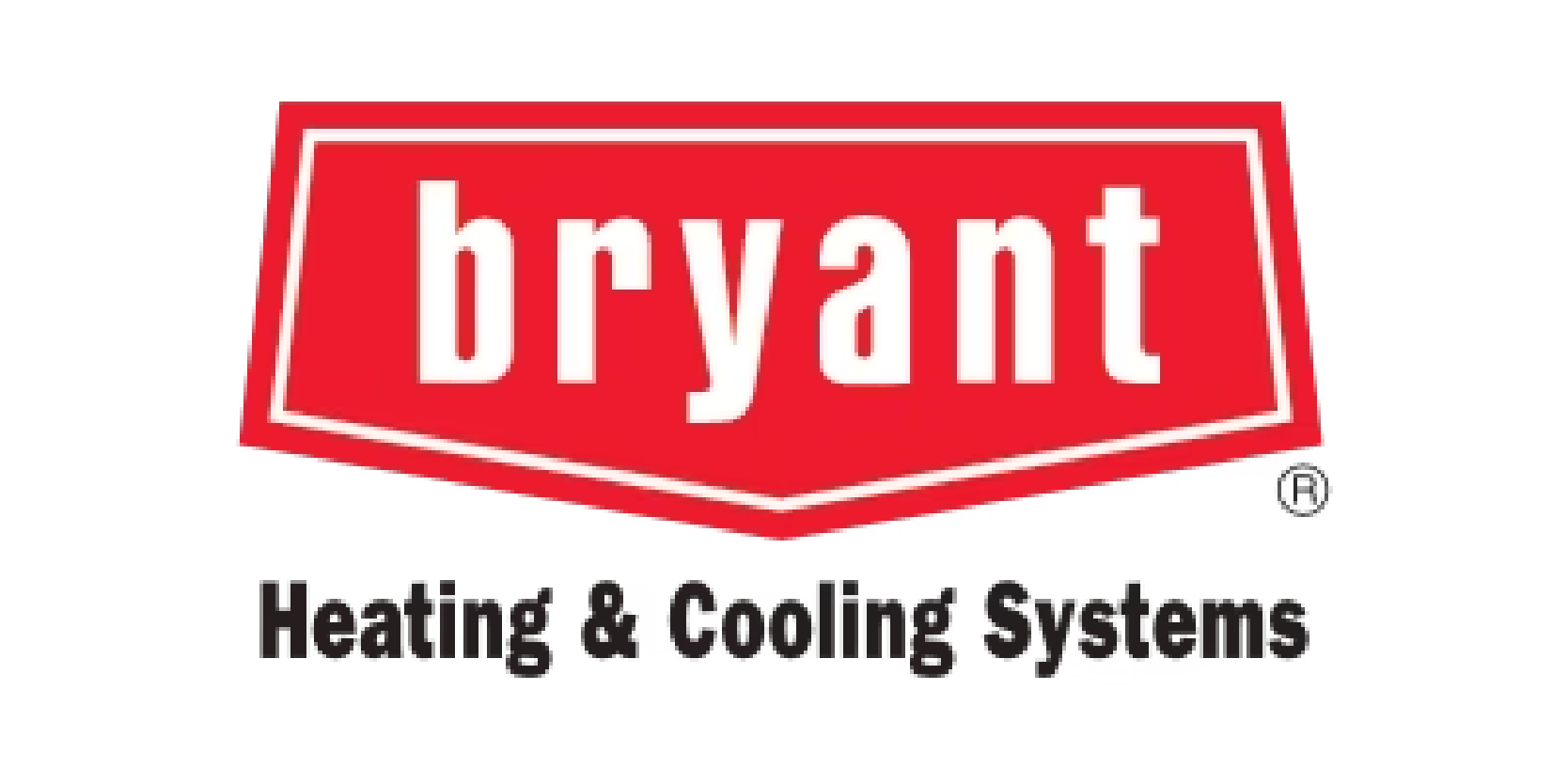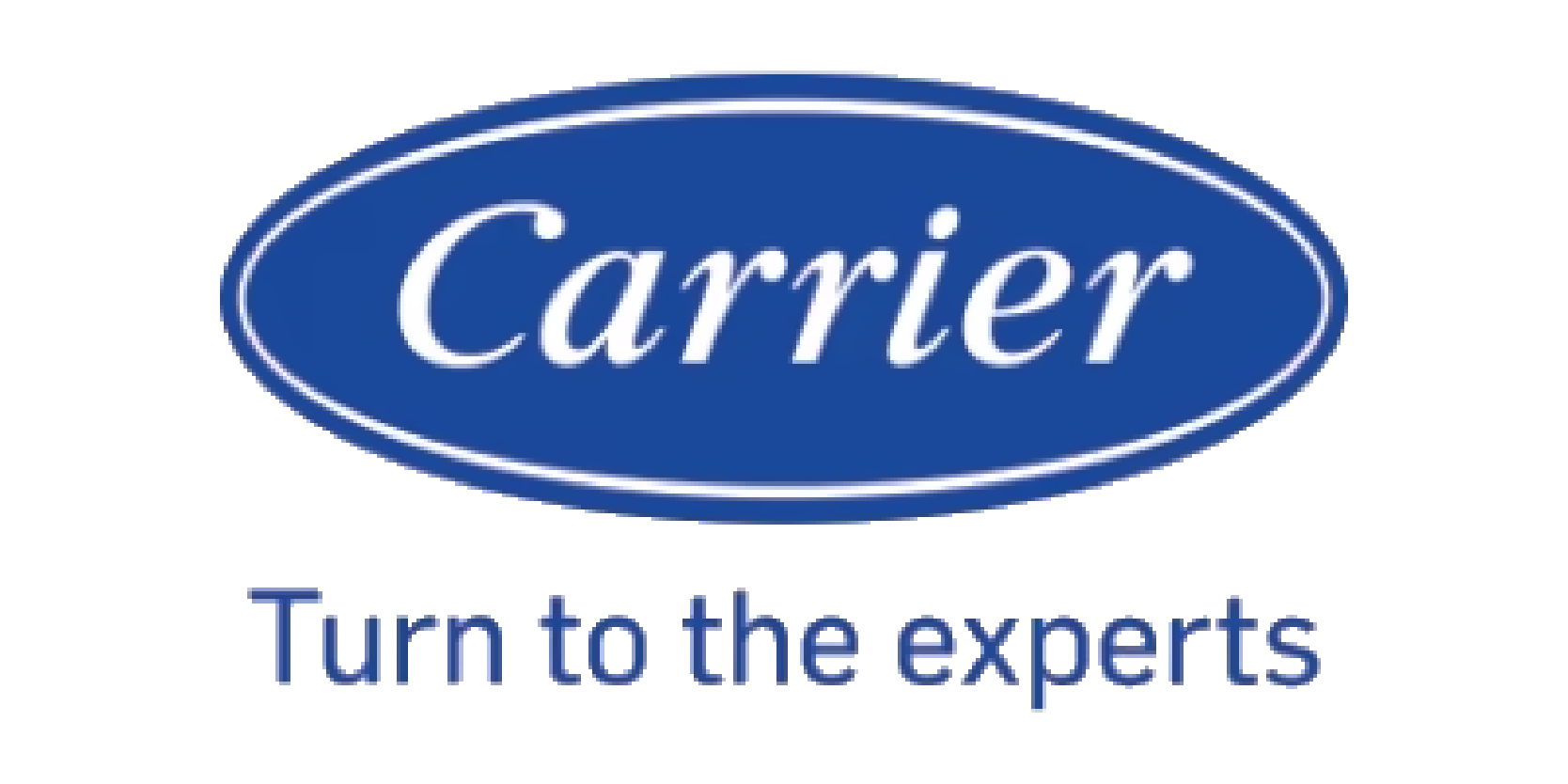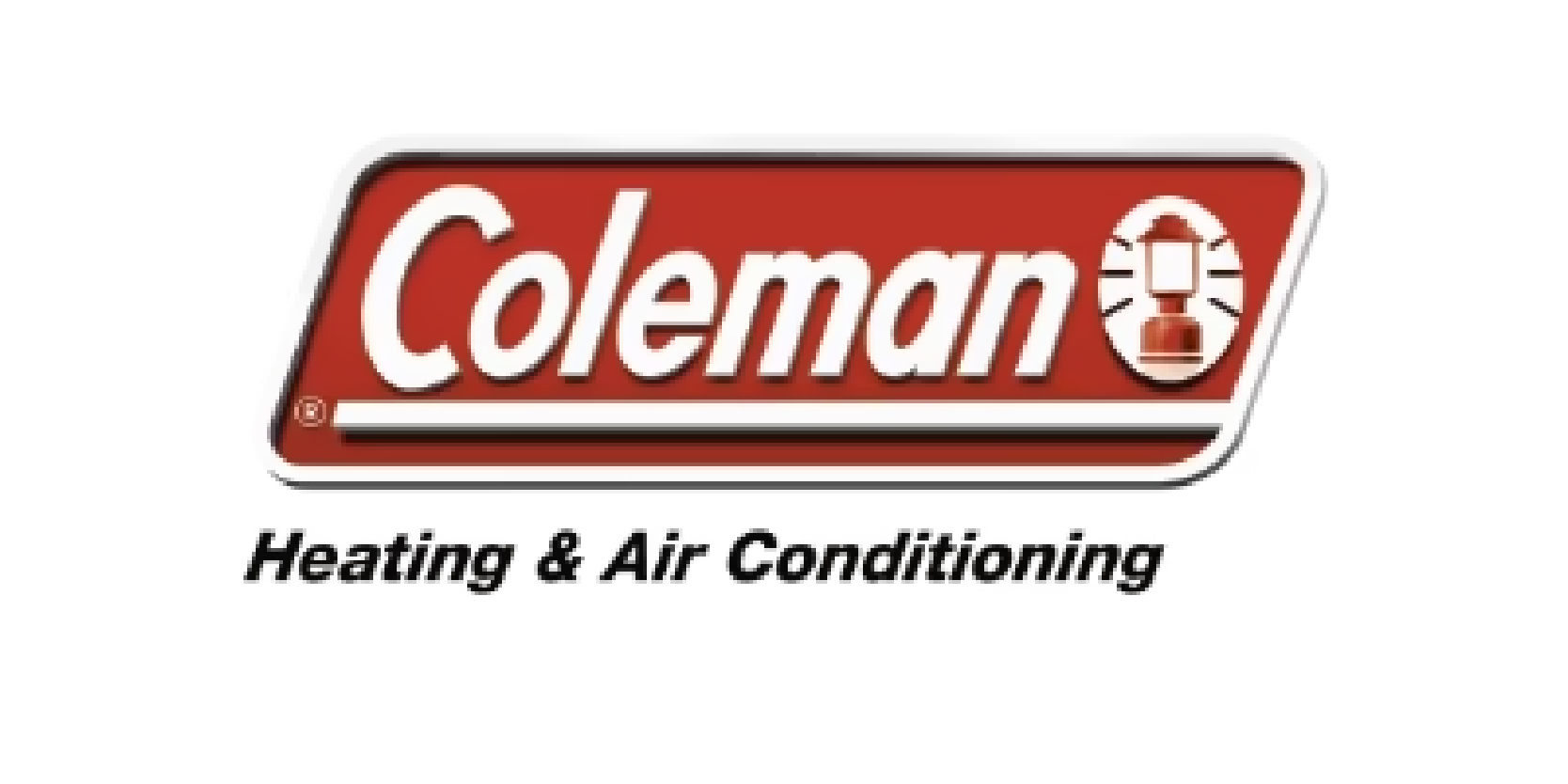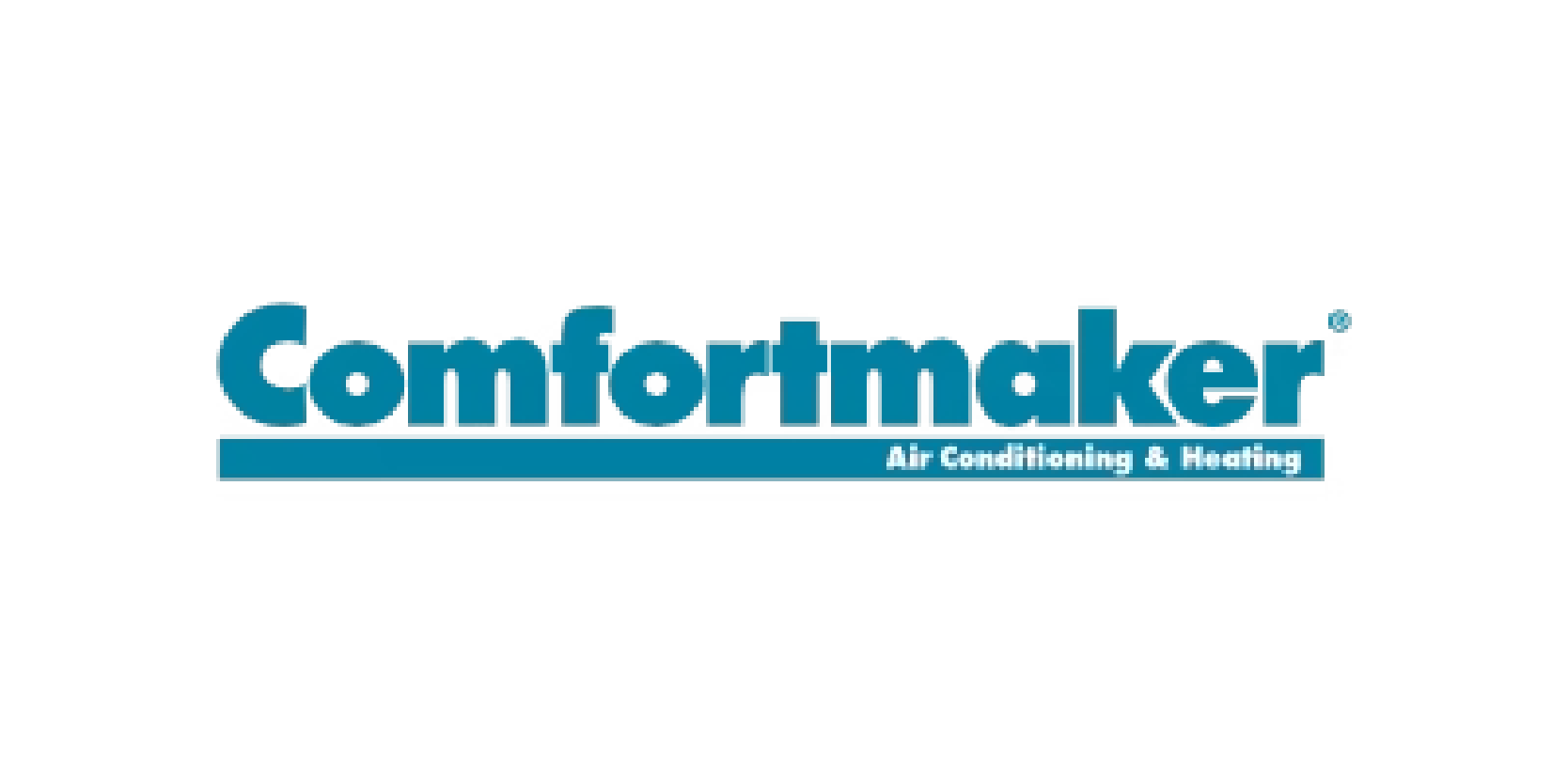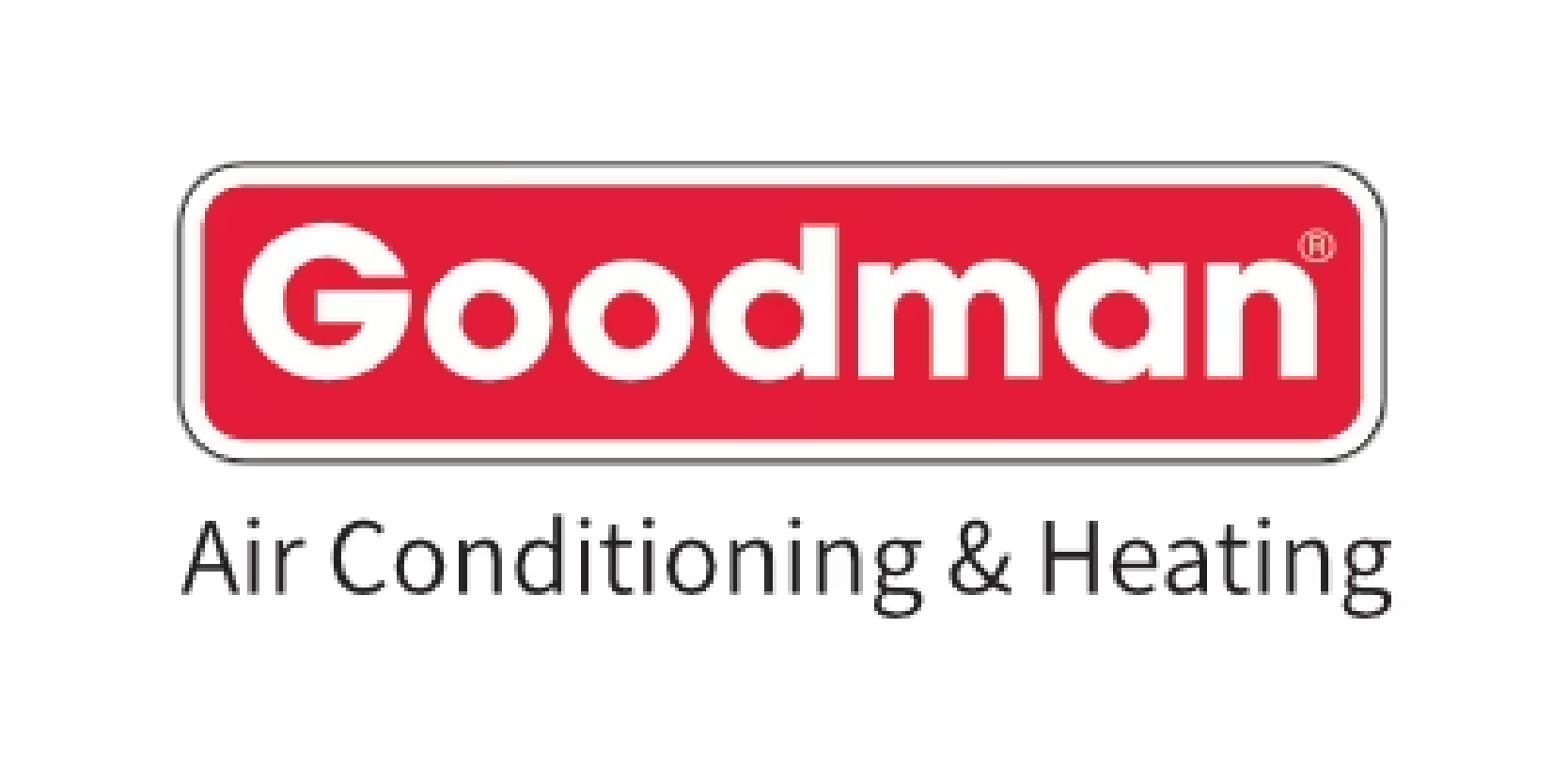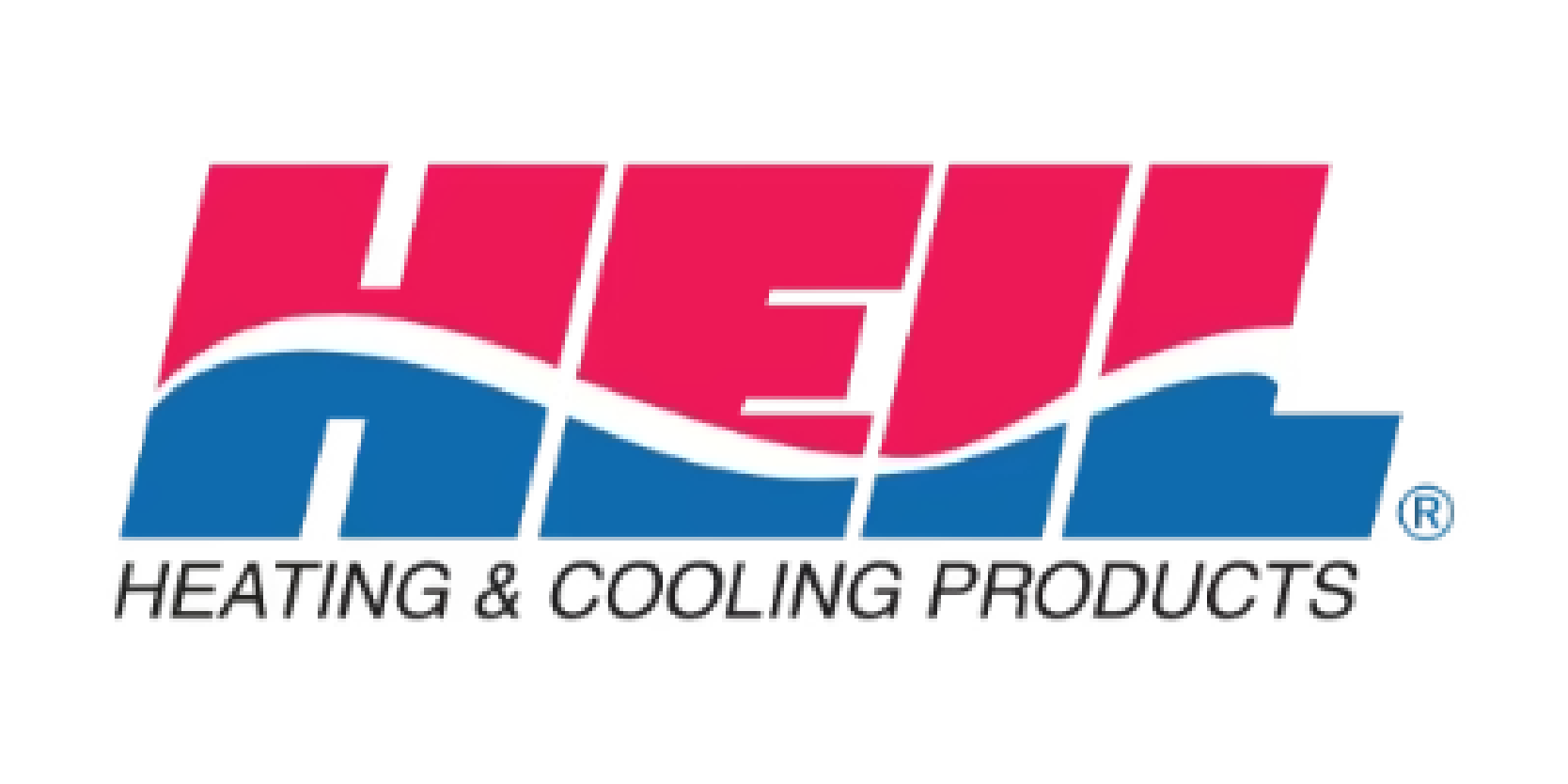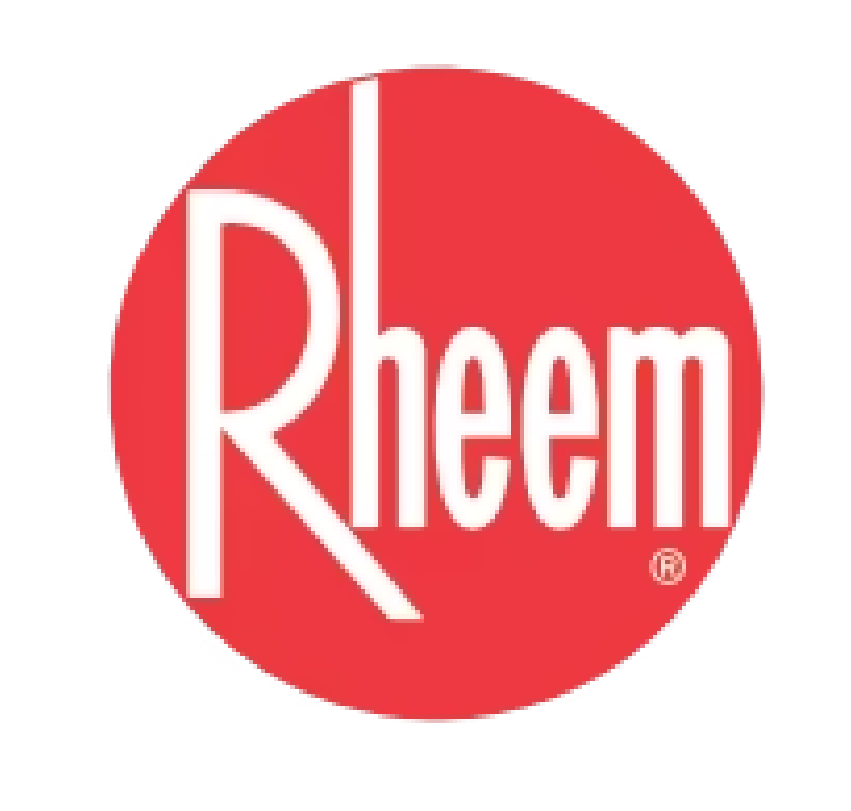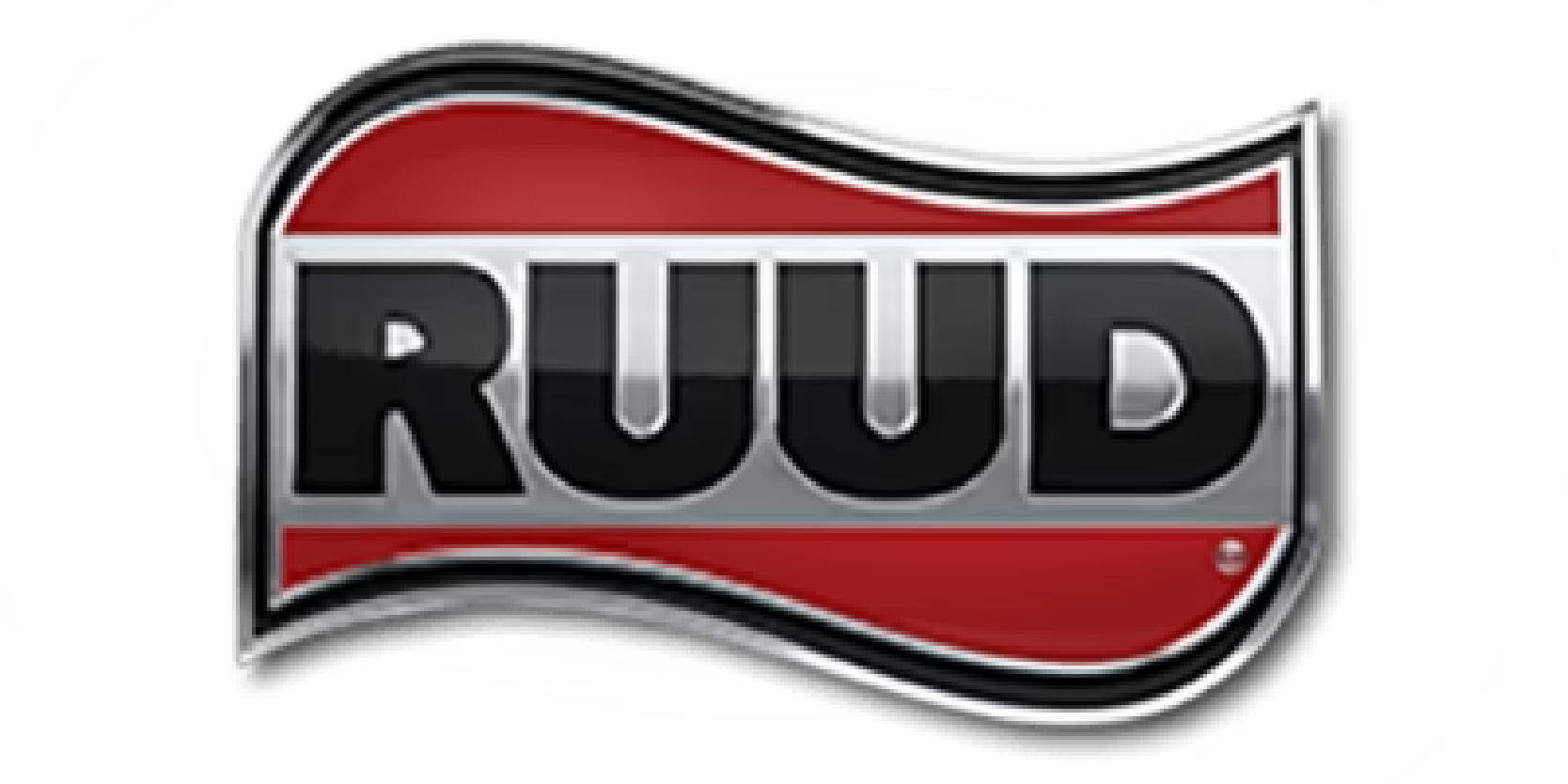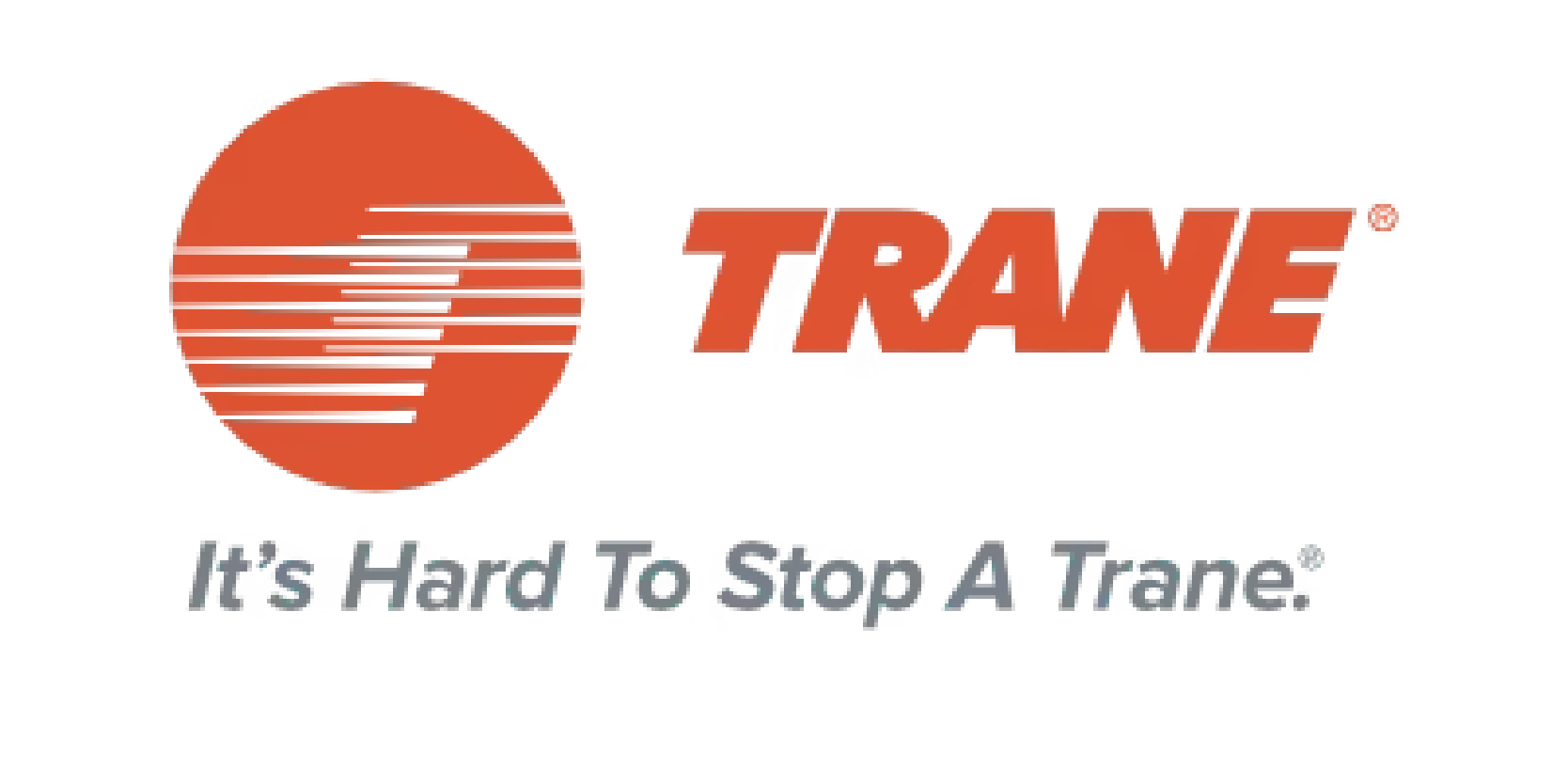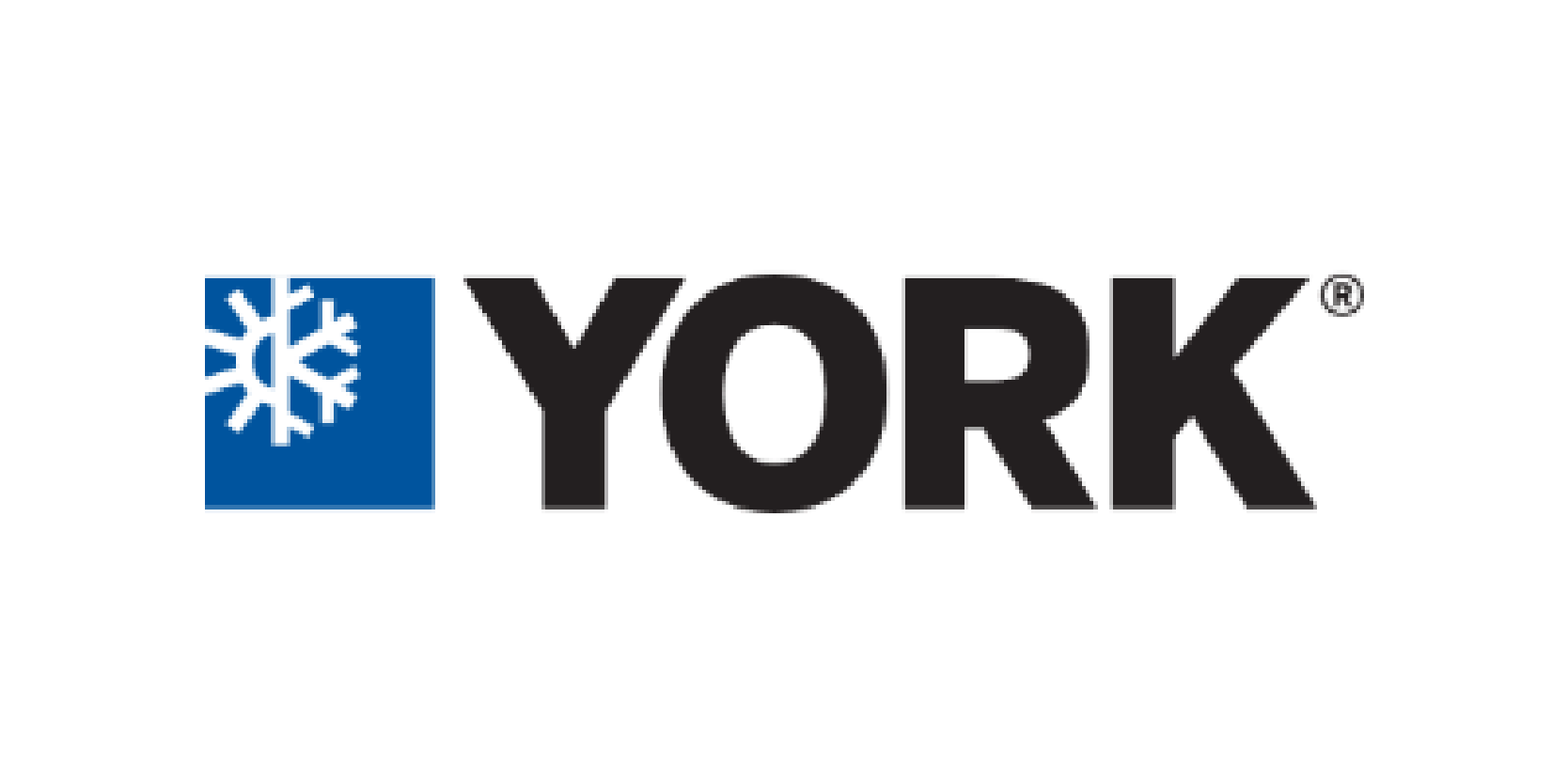
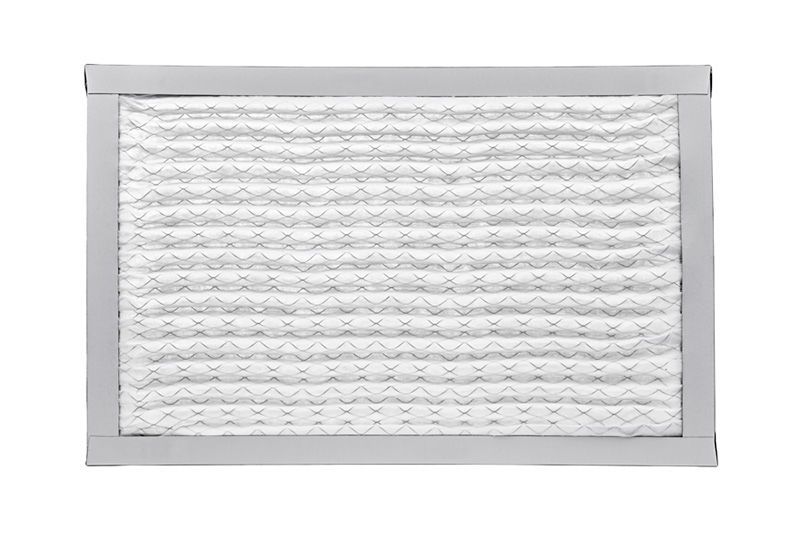
Your furnace filter is the unsung hero of your furnace. It quietly does its job without any fuss and allows the rest of the furnace to do its job. It’s not a complicated item, but there are some basics we at All City Heat and Air think you should know to help it do its job.
Its Purpose
The main purpose of your furnace filter is to protect your furnace, specifically the blower fan, from all the dust, debris, and other pollutants the return duct takes in. The filter also aids in your home’s indoor air quality (IAQ) for your breathing health.
How It Works
Your furnace cycles air through your Matthews home, ducts , and furnace. The cold air is drawn through the system’s return ducts to the furnace, where the air is heated through the heat exchanger.
The now-heated air travels through the ducts out through the vents into your home’s rooms. The warmer air, now in your rooms, pushes the existing cold air back through the return ducts, and the process begins again.
With all this air traveling and pushing, it’s picking up the dirt, dust, and other pollutants to travel along with it. This all passes through your furnace’s filter, and the filter prevents it from getting to the rest of the system and being pushed into your rooms.
Types
There are several types of furnace filters on the market. It can be confusing, so ask one of our All City Heat and Air heating, ventilation, and air conditioning (HVAC) professionals which filter type would work best for your North Carolina home and situation. The most common types are:
- Fiberglass, disposable ––most common type of filter, only traps the largest particles, doesn’t aid your indoor air quality or if you suffer from allergies or asthma, least expensive, replaced monthly.
- Pleated, disposable ––very popular type of filter, made from polyester or cotton paper, traps smaller particles like spores and mites, very affordable, replaced monthly.
- Electrostatic, disposable ––constructed with self-charging electrostatic paper or cotton fibers, traps small particles, good choice if you have pets or smokers, not overly costly, price increases if custom size needed.
- Electrostatic, permanent ––constructed with self-charging electrostatic fibers, traps small particles, good choice if you have pets or smokers, machine-washable permanent filter, higher initial cost but can last eight to 10 years.
- High-efficiency pleated ––constructed from 4-inch to five-inch pleated synthetic cotton, traps the smallest particles, attaches to metal grid to help stop leaks, good choice for those with autoimmune diseases or respiratory issues, commonly used in hospitals, more costly, not available for all HVAC systems.
Sizes
Just as there are different types of filters, there are different sizes as well. The size is pretty much dictated by your furnace.
If you’ve noticed the measurements on your filter’s box, you’ll see it’s sized by thickness/depth, height, and length. The most common thickness is 1 inch and second runner up is the 4 inch.
Common sizes range from 14 inches x 25 inches to 25 inches x 25 inches. Check your manufacturer’s instructions to determine your furnace’s recommended filter size, or, if you already have a filter, check the filter’s frame for the size printed or written there.
MERV Ratings
Filters are rated on their denseness, in terms of their Minimum Efficiency Reporting Value, or MERV. According to the National Air Filtration Association (NAFA) , an air filter’s performance is determined by measuring the particle counts upstream and downstream of the air-cleaning device being tested. Most filters’ values range from 1 to 16, with the higher number representing the thickest and densest filter.
While a filter with a higher MERV rating will most definitely catch more dust and pollutants, it can be so thick that it impedes your furnace’s airflow, which can lead to a whole other host of issues. It’s best to check with one of our HVAC professionals to determine the appropriate MERV value you should use with your furnace.
Changing/Replacing It
Your furnace filter needs to replaced or cleaned on a regular basis for optimum furnace maintenance , as well as for your optimum lung health. Depending on the type of filter your furnace uses, you may need to change or clean the filter monthly or every three months at maximum. A helpful tip to help you remember is to record the date on the filter itself.
With a permanent type of filter, you may need to clean it monthly and only replace it after years of use. Since this affects the health of both your furnace and yourself, it’s best to err on the side of caution. Check your filter monthly, and if it looks dirty, replace or clean it. Those with breathing issues should definitely abide by this recommendation.
Contact All City Heat and Air for All Your Filter Needs
I t’s important to regularly take care of your furnace filter’s maintenance to keep everything working well. Be sure to contact our All City Heat and Air professionals here in Matthews, NC , at 704-545-2000 or request service online with any questions you may have about your HVAC system, especially your filter.
The post Furnace Filters 101 first appeared on All City Heat and Air and is written by All City Heat and Air.
